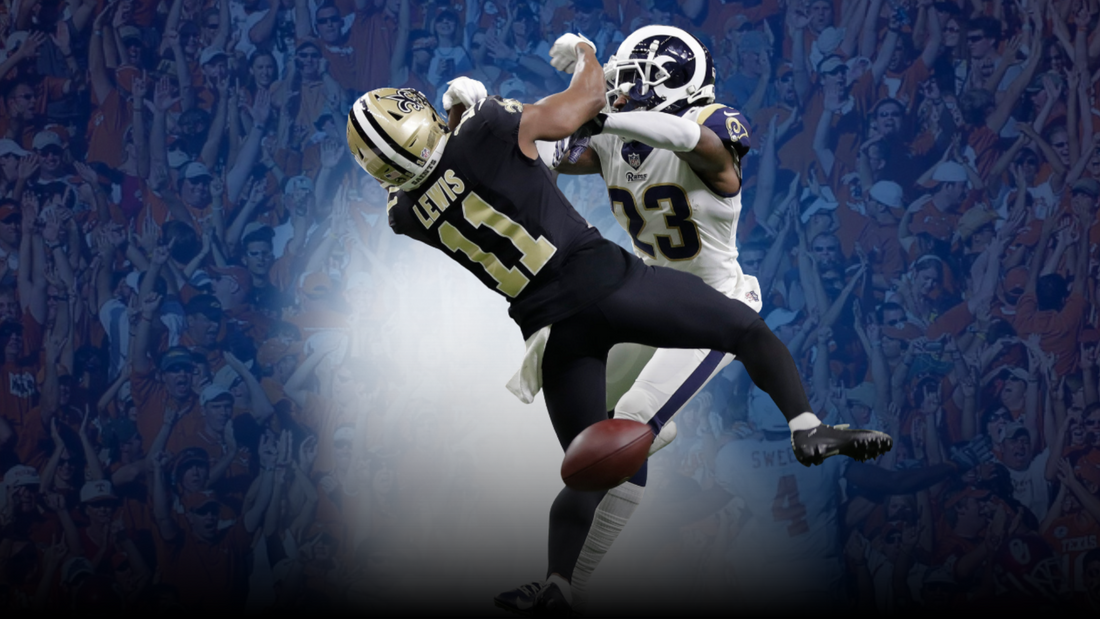
The Most Rigged Moments in NFL History: Controversial Games and Decisions Explained
By Jason Bolton June 04, 2025 09:42
The NFL has seen its fair share of thrilling moments, but some games and decisions have sparked intense controversy, casting shadows over the sport’s integrity. From questionable calls by officials to baffling rule interpretations, these moments have fueled debates among fans, players, and analysts alike. Here’s a look at the most rigged or at least most controversial moments in NFL history that continue to provoke discussion.
1. The Fail Mary – Packers vs. Seahawks (2012)
Arguably the most infamous controversial call in recent NFL history, the “Fail Mary” occurred during a Monday Night Football game amid a referee lockout. With just eight seconds left, Seahawks quarterback Russell Wilson launched a Hail Mary pass to the end zone. Both Seahawks receiver Golden Tate and Packers defender M.D. Jennings appeared to catch the ball simultaneously. The replacement officials ruled it a touchdown for Seattle, despite clear evidence that Tate pushed off Packers defender Sam Shields, an offensive pass interference that went uncalled. Since pass interference is not reviewable, the touchdown stood, giving Seattle a 14–12 victory. The NFL commissioner’s office received over 70,000 complaints, and the incident even drew criticism from celebrities like LeBron James and Dale Earnhardt Jr., who called the season “stained in a way that’s irreparable”.
2. The Tuck Rule Game – Patriots vs. Raiders (2002)
During the 2002 AFC Divisional Playoffs, the Patriots faced elimination against the Raiders. Late in the game, Raiders’ Charles Woodson appeared to have forced a fumble from Patriots quarterback Tom Brady. However, officials invoked the “Tuck Rule,” ruling the play an incomplete pass because Brady’s arm was moving forward to tuck the ball back in. This controversial call allowed the Patriots to retain possession, tie the game, and eventually win in overtime. The decision has been heavily debated, with many Raiders fans feeling robbed of a chance at a Super Bowl. The call also marked the beginning of the Patriots’ dynasty under Brady and coach Bill Belichick.
3. The No-Call – Saints vs. Rams NFC Championship (2019)
In a pivotal moment of the 2019 NFC Championship Game, Saints receiver Tommylee Lewis was clearly interfered with by Rams defender Nickell Robey-Coleman before a pass arrived. Despite the blatant pass interference, no flag was thrown. This no-call prevented the Saints from running out the clock and likely winning the game. The Rams tied the game and eventually won in overtime, advancing to the Super Bowl. The backlash was immense, prompting the NFL to temporarily reinstate pass interference reviews. Saints fans demanded a replay of the game, but the league maintained it was a human error that did not alter the ultimate outcome.
4. The Immaculate Reception – Steelers vs. Raiders (1972)
One of the earliest and most iconic controversial plays, the Immaculate Reception saw Steelers’ Franco Harris catch a deflected pass and run it in for a game-winning touchdown. Initially ruled an incomplete pass, the call was reversed, sparking debate about whether the catch was legal under the rules at the time. The play remains a defining moment in NFL lore and controversy.
5. The Music City Miracle – Titans vs. Bills (2000)
In a wild playoff finish, the Titans executed a last-second lateral play on a kickoff return that resulted in a game-winning touchdown. Initially ruled an illegal forward pass, the call was reversed after review, giving the Titans a dramatic victory. The play’s legality was hotly contested and remains one of the NFL’s most debated finishes.
These moments highlight the fine line between human error and perceived manipulation in the NFL. While there is no conclusive evidence that games have been intentionally rigged, the impact of controversial calls on outcomes and fan trust is undeniable. As NFL Commissioner Roger Goodell has noted, “Officiating mistakes are part of the game, but we strive to minimize them.” The league’s ongoing efforts to improve officiating and embrace technology reflect a commitment to fairness, though debates over these historic moments will undoubtedly continue.


































































